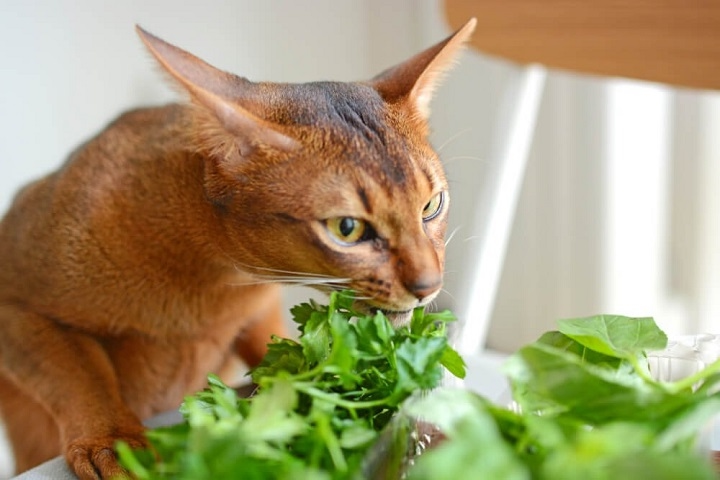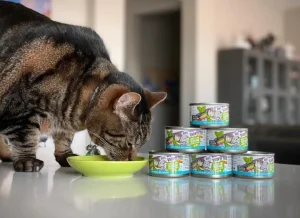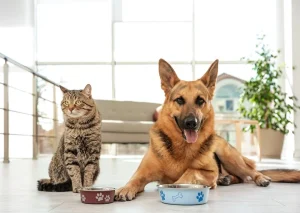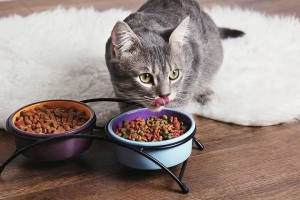Parsley is a common herb found in kitchens around the world. But if your curious kitty starts sniffing around your herb garden or plate, you may wonder: can cats eat parsley safely? The answer isn’t entirely straightforward. While parsley has some potential health benefits, it also carries risks if consumed in large amounts.
In this detailed guide, we’ll explore whether parsley is good or bad for cats, how much (if any) they can eat, and the best ways to safely incorporate it into their diet if you choose to.
Is Parsley Safe for Cats?
Parsley is safe for cats in very small amounts, especially when it’s the curly-leaf variety. It’s sometimes used in commercial cat treats or dental chews to freshen breath and support urinary health. However, if consumed in large quantities—particularly flat-leaf or wild varieties—parsley can become toxic due to a compound called furanocoumarin.
So while a sprinkle of parsley won’t harm your cat, a bunch of it might.
Benefits of Parsley for Cats (In Small Doses)
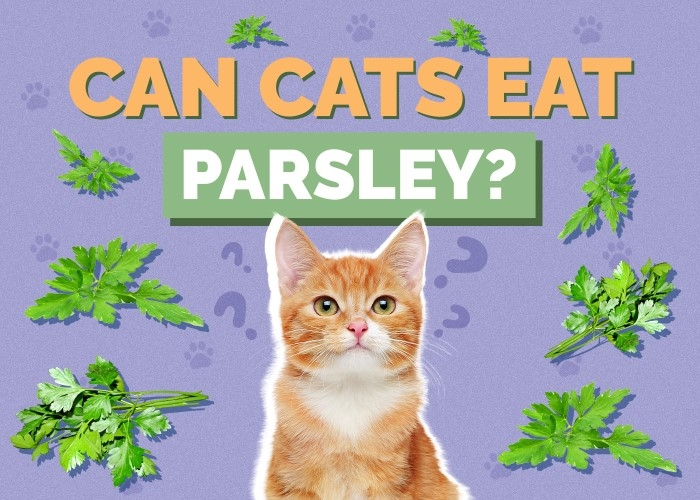
Supports Digestive Health
Parsley can help with digestion and mild bloating. It contains fiber, which promotes healthy gut function in small amounts.
Antioxidant Properties
Parsley is rich in vitamins A, C, and K, along with flavonoids and antioxidants that may support immune function and cellular health in your pet.
Urinary Support
Parsley is known for its diuretic properties, which may aid in flushing toxins through urine. This is why some pet food brands add trace amounts of parsley to help prevent urinary tract infections (UTIs).
Freshens Breath
Some cat dental treats include parsley to help improve your cat’s breath. While it’s not a substitute for oral care, it can provide mild deodorizing benefits.
Risks of Parsley for Cats
Furanocoumarins in Parsley
This is the biggest concern. Furanocoumarins are natural compounds that can cause photosensitivity and toxicity in cats if consumed in large amounts. This is especially true with flat-leaf parsley and wild parsley.
Can Cause Digestive Upset
Too much parsley can lead to vomiting, diarrhea, or stomach discomfort. Cats have delicate digestive systems that are easily affected by changes in diet.
Not Suitable for Pregnant Cats
Parsley may stimulate the uterus, which could potentially cause complications in pregnant cats. Avoid giving parsley to a cat that is expecting kittens.
Risk of Overuse in Homemade Treats
Homemade cat treats that include parsley must be carefully measured. A pinch is fine, but a handful could lead to toxicity over time.
How Much Parsley Is Safe for Cats?
A small pinch of chopped curly parsley added occasionally to your cat’s food is safe for most healthy adult cats. Limit this to once or twice a week.
Avoid giving fresh parsley in large clumps or daily, and never allow your cat to nibble on parsley plants freely, especially if growing outdoors.
Can Cats Eat Cooked Parsley?
Cooked parsley in small amounts is generally safer because the cooking process reduces some of the active compounds. If you’re adding a tiny bit to homemade food, cooked is preferable over raw.
However, do not cook parsley with onions, garlic, or oil—these are all toxic to cats.
Parsley in Cat Treats: Why Some Brands Use It
Many commercial cat products include dried curly parsley. It’s used in tiny amounts to:
- Freshen breath
- Promote urinary health
- Offer a touch of vitamins
Always check the label for quantities. If parsley is far down the ingredient list, the amount is usually minimal and safe.
Types of Parsley and Their Impact on Cats
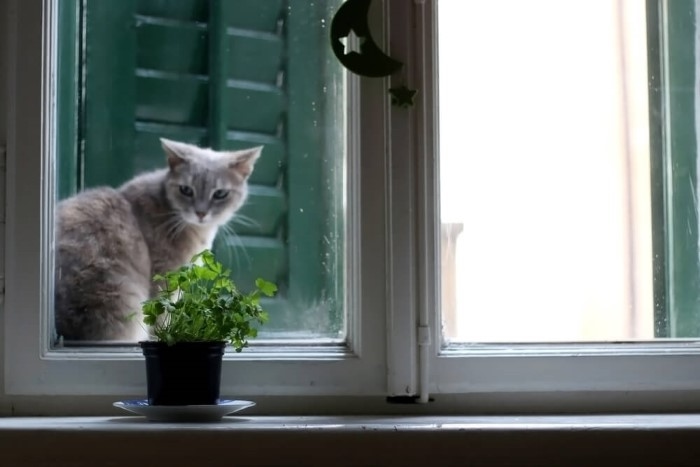
| Type of Parsley | Safe for Cats? | Notes |
| Curly-Leaf Parsley | Yes, in small amounts | Common in pet products |
| Flat-Leaf (Italian) Parsley | Risky in larger doses | Higher furanocoumarin content |
| Wild Parsley | No | Can be toxic, avoid completely |
What If My Cat Ate a Lot of Parsley?
If your cat chewed through your herb garden or ate a large amount of parsley:
- Observe your cat for symptoms such as vomiting, diarrhea, lethargy, or increased sensitivity to sunlight
- Call your vet if you notice any unusual behavior or if a significant amount was consumed
- Keep plants out of reach in the future to prevent accidental ingestion
Healthier Herb Alternatives for Cats
Catnip
A favorite among felines, catnip is completely safe and provides stimulation and joy.
Cat Grass
This includes wheatgrass and barley grass. It aids digestion and helps with hairball control.
Valerian Root
This herb can act as a stimulant for cats, much like catnip, and is safe in moderation.
Tips for Using Parsley Safely
- Only use curly-leaf parsley
- Offer tiny amounts (1–2 pinches at a time)
- Use dried or cooked parsley rather than raw, fresh bunches
- Avoid feeding parsley to pregnant cats or kittens
- Watch for any signs of food sensitivity or allergy
FAQs About Cats and Parsley
Can cats eat parsley safely?
Yes, cats can eat curly parsley in small quantities. Avoid flat-leaf and wild parsley due to potential toxicity.
Is parsley toxic to cats?
Large amounts of parsley, especially flat-leaf types, can be toxic due to furanocoumarins. Tiny portions are generally safe.
Why do some cat foods include parsley?
Pet brands include small doses of parsley for fresh breath and urinary support. The quantities used are well below harmful levels.
What herbs are dangerous for cats?
Avoid garlic, onion, chives, and wild herbs. These can be toxic even in small doses.
Can I grow parsley if I have cats?
Yes, but keep the plant in a place your cat can’t reach, especially if you grow flat-leaf or wild parsley varieties.

